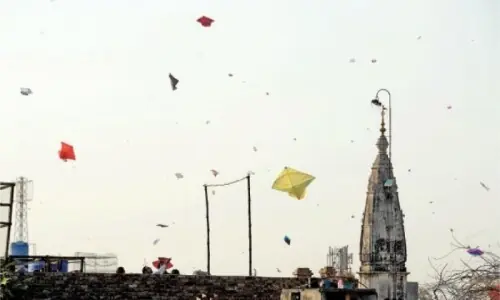DUBAI: Iranian protesters stormed the Saudi embassy in Tehran early on Sunday and Iran’s top leader predicted “divine vengeance” for Saudi Arabia’s execution of a Shia cleric.
Strong rhetoric from Tehran was matched by Iran’s allies across the region, with Sayyed Hassan Nasrallah, the head of Lebanese militia Hezbollah, describing the execution as “a message of blood”. Moqtada al-Sadr, an Iraqi Shia cleric, called for angry protests.
Tensions between Iran and Saudi Arabia’s monarchy had already run high for years as they backed opposing forces in wars and political conflicts across the Middle East. However, the execution of the cleric and the storming of the kingdom’s Tehran embassy raised the pitch of that rivalry.
Demonstrators protesting against the execution of Sheikh Nimr al-Nimr broke into the embassy building, smashed furniture and started fires before being ejected by police.
Khamenei speaks of ‘divine vengeance’; Rouhani calls for action against attackers
Iran’s President Hassan Rouhani condemned the execution as “inhuman”, but also urged the prosecution of “extremist individuals” for attacking the embassy and the Saudi consulate in the north-eastern city of Mashhad, state media reported.
Tehran’s police chief said an unspecified number of “unruly elements” were arrested for attacking the embassy with petrol bombs and rocks. A prosecutor said 40 people were held.
“The unjustly spilled blood of this oppressed martyr will no doubt soon show its effect and divine vengeance will befall Saudi politicians,” Iran’s Supreme Leader Ayatollah Ali Khamenei was quoted as saying by Iran’s state television.
However, the Saudi and Iranian foreign ministers told Austria they had no interest in a further of heightening tensions between them, a spokesman for Austria’s Foreign Minister Sebastian Kurz said.
Nimr, the most vocal critic of the Saudi royal family among the Shia minority, had come to be seen as a leader of the sect’s younger activists, who had grown tired of the failure of older, more measured leaders to achieve their rights.
His execution sparked angry protests in the Qatif region in eastern Saudi Arabia, where demonstrators denounced the ruling Al Saud dynasty, and in the nearby Gulf kingdom of Bahrain.
Relatives of Nimr, reached by telephone, said authorities had informed them that the body had been buried “in a cemetery of Muslims” and would not be handed over to the family.
Although most of the 47 men killed in the kingdom’s biggest mass execution for decades were Sunnis convicted of Al Qaeda attacks in Saudi Arabia a decade ago, it was Nimr and three other Shias, all accused of involvement in shooting police, who attracted most attention in the region and beyond.
Envoys summoned
Saudi Arabia on Saturday summoned the Iranian ambassador to protest what it described as hostile remarks emerging from Tehran. On Sunday, Riyadh’s Gulf allies — the United Arab Emirates, Kuwait and Bahrain — also summoned Tehran’s envoys in their countries to lodge complaints.
In Iraq, whose Shia-led government is close to Iran, religious and political figures demanded that ties with Riyadh be severed, calling into question Saudi attempts to forge a regional alliance against the militant Islamic State group, which controls large swaths of Iraq and Syria.
Iraq’s top Shia cleric Grand Ayatollah Ali al-Sistani described the executions as an “unjust aggression”.
Despite the focus on Nimr, the executions seemed mostly aimed at discouraging jihadi activities in Saudi Arabia, where dozens have died in the past year in attacks by Sunni militants.
But Saudi Arabia’s Western allies, many of whom supply it with arms, are growing concerned about its new assertiveness.
The US State Department said Nimr’s execution “risks exacerbating sectarian tensions at a time when they urgently need to be reduced”, a sentiment echoed by EU foreign policy chief Federica Mogherini.
Published in Dawn, January 4th, 2016


































